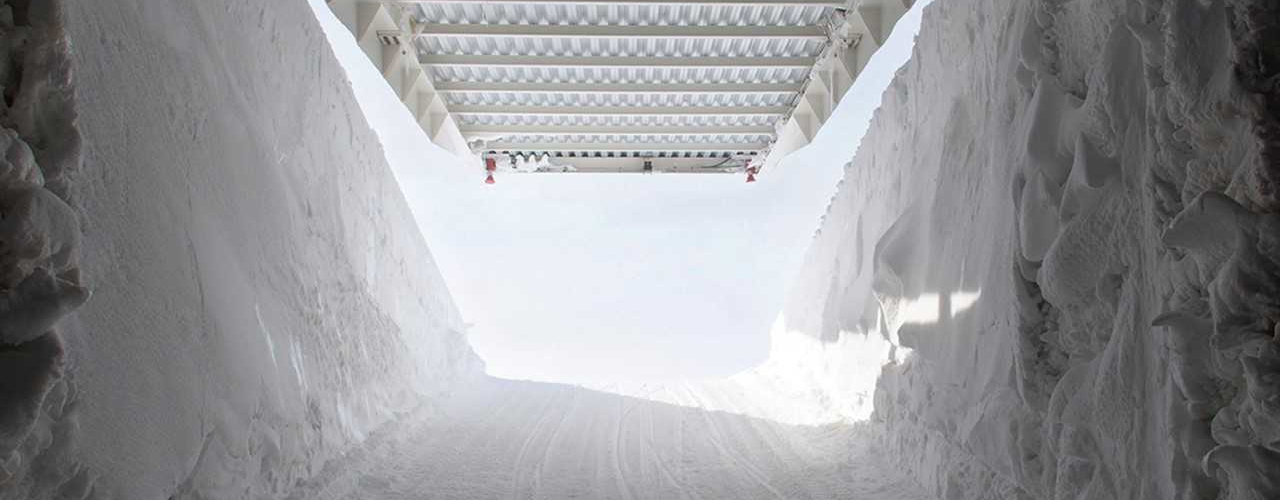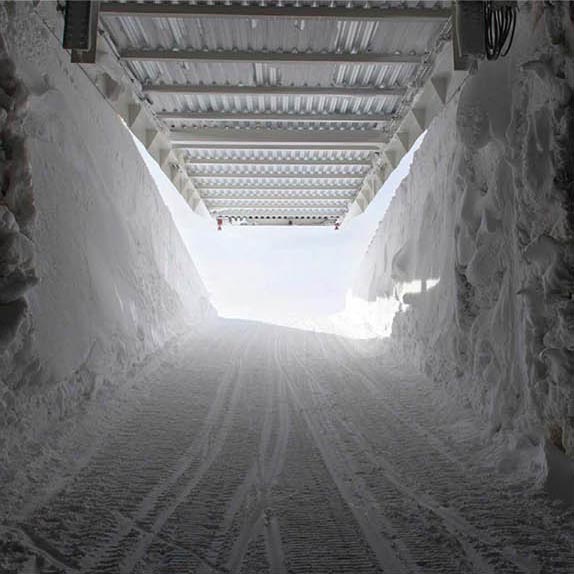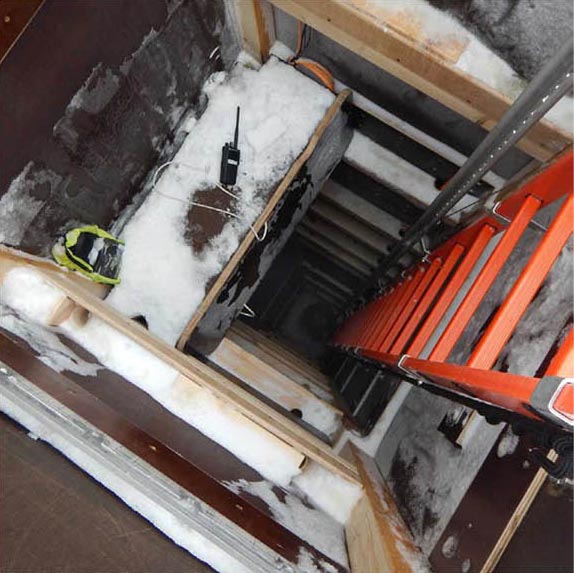In anthropology, liminality (Latin; līmen: “a threshold”) means the quality of ambiguity or disorientation that occurs in the middle stage of a rite of passage, when participants no longer hold their pre-ritual status but have not yet begun the transition to the status they will hold when the rite is complete. According to Victor Turner, they “stand at the threshold” between their previous way of structuring their identity, time or community and a new way. During liminal periods, social hierarchies may be reversed or temporarily dissolved, continuity of tradition may become uncertain, and future outcomes once taken for granted may be thrown into doubt.
Both photographs were created in 2017 during an expedition to the research station Neumayer III in the Antarctic. It is uncertain whether they depict entrances or exits, represent a fall or a climb or promise salvation or damnation. For me, these two photos tell of the transitory moment, in which we find ourselves. Humanity must pass through the gateway to a climate-friendly world order.
The 6th Assessment Report of the Intergovernmental Panel on Climate Change clearly establishes that a climate-resilient development will be a challenge even at the present level of warming. It will be impossible in some regions if global warming exceeds 2°C. These findings underline the urgency of climate action, which is concentrated on equality and fairness. Appropriate financing, technology transfer, political commitment and partnerships will lead to a more effective adaptation to climate change and to a reduction of emissions. Each further delay in taking concentrated global action will miss a brief window, which closes very quickly, to ensure a future worth living.
Judith Neunhäuserer, born 1990 in Bruneck-Brunico, lives and works in Munich and Milan.



